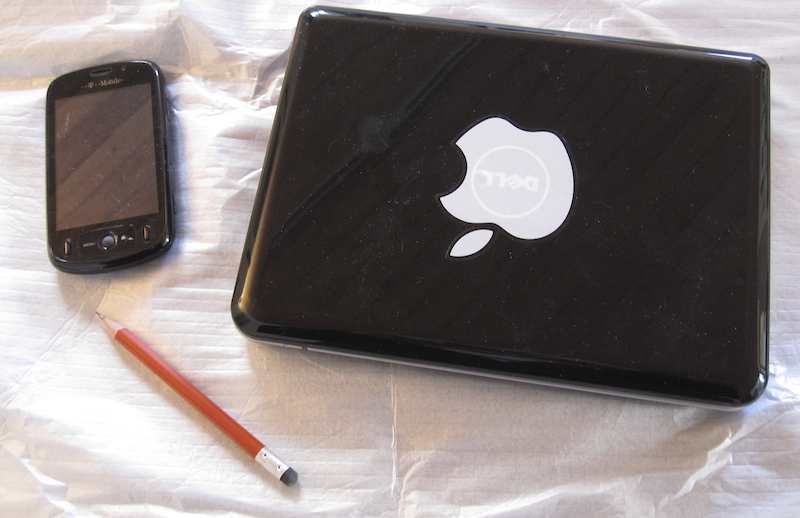Amazing video. Thanks for BoingBoing for spotting it.
B&W: it’s not a black-and-white issue
The other day I happened to mention to Quentin that I found myself working more and more in B&W. “Pre- or post-processing?” he asked, clearly puzzled. As an uber-geek the idea that anyone would voluntarily throw away data seemed absurd to him. Why not capture all the colour data first and discard it later? And this does indeed seem to be the conventional wisdom in the trade.
Brooding on this later, it occurred to me that there are two separate issues here. One is technical — the irrationality of throwing away data. The other is aesthetic. My feeling is that if one is shooting ab initio in B&W it changes the whole way one looks at photographic opportunities. Some things just won’t work in monochrome (just as some scenes/subjects won’t work in colour), so if you restrict yourself to B&W then your approach to picture-taking changes. You have to make a judgement call in advance, whereas if you decide to de-saturate afterwards then you’re basically saying that colour doesn’t work for this particular image and you may as well ‘degrade’ to B&W.
LATER: Duncan Thomas pointed me at a Photoshop Tutorial which sets out one procedure for converting a colour image into B&W. About half-way through reading it, I lost the will to live (so it’s just as well that the author has produced an automated script that will do it). The tutorial begins with a quotation from Ansel Adams which suggests that the great man took the same view as I do:
“One sees differently with color photography than black and white…in short, visualization must be modified by the specific nature of the equipment and materials being used”.
I met Adams once — in the V&A of all places. He was there for the opening of an exhibition of his work. I have a vivid recollection of him surrounded by London media luvvies, towering over them and dressed in a lumberjack shirt and a very large pair of LL Bean boots.
Mobile office, release 2.0
Meet my new mobile office. Because I move around a lot, I’ve been using a (supposedly) 3G dongle from the 3 network, which is the only device I’ve used in years which makes me long for the good ol’days of 300 baud acoustic couplers. The other day it occurred to me that my cheapo T-mobile Android Pulse phone might make a good modem, and — lo! — thanks to PDAnet, it does. It’s a very elegant solution which doesn’t require any root hacking on the phone. Just download the App from the Android market and install it. Download the client from here and install on your Mac (and, in my case, also on my Dell Hackintosh). There are clients for BlackBerry, Palm, iPhone and Windows Mobile too. Hook up the phone via the USB cable, launch the App on both machines, click ‘Connect’ and away you go. The interesting thing for me is how quick and efficient it is compared to the 3 dongle. (Memo to self: cancel that £10/month direct debit.)
In addition to tethered USB mode, PDAnet can also handle bluetooth connections. But only on Android 2.0. Sigh. There’s always a catch somewhere. Still…
Chateau Ashcroft: the gigantic duck house
L’affaire Ashcroft has had one useful side-effect: it’s provided a reminder that no matter how touchy-feely Dave Cameron might like to appear, his party hasn’t escaped from its sleazy background. Marina Hyde had a nice column about this.
Still, we love a tax exile in this country. We let them fund our political parties, and watch as they coincidentally obtain peerages. In the case of Lord Ashcroft, we watch as they become deputy chairman of the Conservative party, amass unquantified power over its leaders, and begin ploughing some of those very millions on which they don’t pay tax into intensely targeted campaigns designed to swing elections. David Cameron has honked loud and long about making trust and transparency an election issue, yet he and his lieutenants either misled the public deliberately as to his lordship’s status, or were too craven or venal to ask questions. They certainly refused to co-operate with the Electoral Commission’s investigation into the matter. Meanwhile, the BBC feel obliged to announce cuts effectively designed to appease that other unelected foreign billionaire, Rupert Murdoch, as though you can appease someone whose goal is your complete destruction.
The biggest problem — as Hyde points out later — is that public outrage over MPs’ expenses is disproportionate compared with what Ashcroft and the Tories are up to. The MPs have been mostly foolish, occasionally venal and in a few cases positively criminal: but Ashcroft is a tax exile who is effectively using his foreign wealth to buy an election. And who also appears to have obtained a peerage after giving assurances that he did not keep.
Seaward bound
Overhead
Angry Anglicans?
Anglicans are the least angry religionists I know — which is what makes this post by Quentin so delicious!
Apple devices dominate mobile wi-fi access
Interesting Mashable report.
Mobile ad network JiWire just released the stats from its latest public Wi-Fi study and found that 56% of connections are from mobile devices like the iPhone, the iPod touch, Android smartphones and Sony’s PSP handheld gaming console.
JiWire serves ads through public Wi-Fi spots in places like airports, coffee shops and hotels. Last year it published another interesting stat: Just shy of 98% of mobile devices that connect to public Wi-Fi are made by Apple. The iPod touch and iPhone took 55.95% and 41.7%, respectively.
Those numbers have slipped slightly since then, with Google Android devices passing Sony’s PSP to take the third-place spot on the list.
Subverting Gmail’s adstream
Well, well. Just came on this exciting report.
Cambridge UK startup Rapportive has released a Firefox and Chrome extension that will replace the ads in your Gmail with photos, biographic data and social media links, including a live display of recent Tweets, for whoever you're corresponding with by email. It’s fantastic and takes about 2 minutes to set up.
Sounds good, eh? But
You don’t need to give Rapportive your Gmail credentials, the service asks you to login via secure Google Federated Login, or OpenID. The startup doesn’t have access to your password, but it does access the contents of your email – that’s how it builds a service for you to use. Any browser extension has access to everything you do on the web, but I expect some people will feel a little nervous about installing a webmail related extension from a small company. I don’t think that concern is warranted enough to justify missing out on this awesome service.
Oh yeah?
Watergate
Sutton Gault. Flickr version here.





